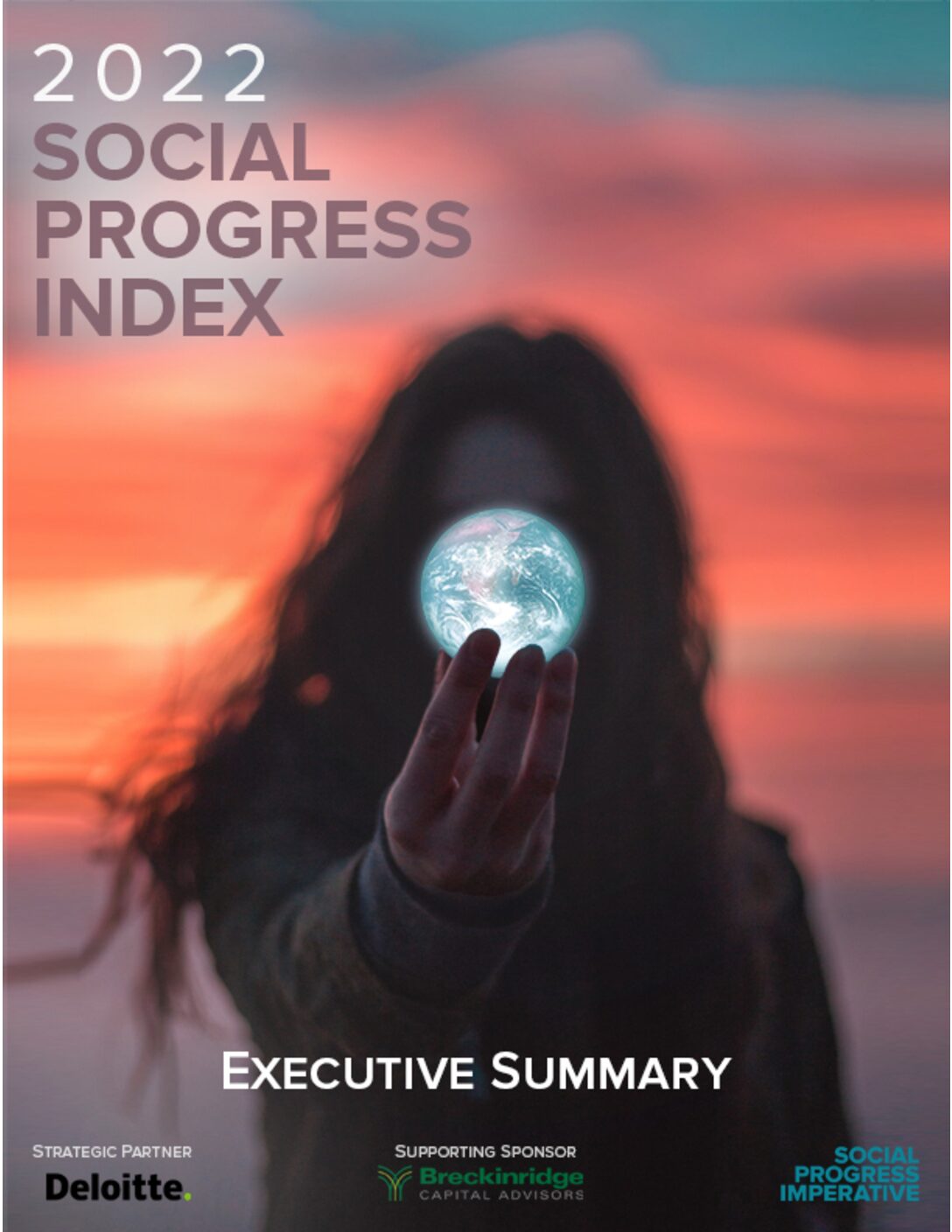The 2022 Social Progress Index (SPI) is a comprehensive measurement tool that solely assesses the non-economic aspects of social performance globally. Importantly, it uses 12 components and 60 indicators to partially gauge the social performance of 169 countries and an additional 27 countries. The primary goal of the index is to comprehend how people live, identify those who are being left behind, and figure out how progress can be accelerated.
The report, however, warns that the world could face a social progress recession in 2023 as the rate of progress has significantly declined. Even though improvements in social progress are being seen globally, the pace has nearly halved since 2017, suggesting stagnation. Moreover, it’s pertinent to note that these improvements in social progress are not uniformly distributed across the framework’s components. Lastly, it provides a population-weighted world score on the SPI. It compares the world’s average scores to the median scores of the 15 countries with GDPs per capita closest to the global average.
Four headlines
- There is a concern that the world is at risk of a social progress recession in 2023. Although there has been an overall improvement in social progress since 2011, it’s important to note that the rate of progress has slowed significantly in recent years. The devastating impact of the COVID-19 pandemic, along with the imminent risks from climate change, economic turbulence, and political changes, poses a significant risk, potentially leading to a regression in global social progress in 2023.
- Interestingly, there has been a slowdown in progress. The world’s social progress has improved by a mere 0.37 points in the last year. Meanwhile, 31% of countries are experiencing a decline in social progress. Comparatively, the rate of progress has slowed by nearly half in the past five years compared to the period from 2011 to 2016.
- Regarding the legacy of COVID-19, it’s important to note that the pandemic has significantly impacted global social progress, thus contributing to the current slowdown. The structural weaknesses and inequities that the pandemic has brought to light have underscored the urgent need for improvements in various aspects of social well-being.
- Due to the risks posed by climate change, economic uncertainty, and political changes, it becomes apparent that there is an urgent need for accelerated action. This heightened action is necessary to prevent a potential regression in global social progress. It’s crucial that governments, businesses, and civil society not only recognize this but also collaborate to address these challenges. By working together, they can drive positive change for all.
Top and Bottom Performers
- Leading the ranking: Norway (90.74), Denmark (89.17), and Finland (88.70) are the top three performers, demonstrating excellence across most of the measured components.
- Lagging: Central African Republic (30.36), South Sudan (34.43), and Chad (35.20) have the lowest scores, facing significant challenges in areas like basic human needs, health, and access to education.
Highlights by Category
- Most robust performance: Health and well-being (70.44), with improvements in life expectancy, access to healthcare, and sanitation.
- Areas of concern: Personal rights (62.60) and sustainability (57.61), with increasing challenges related to freedom of expression, political participation, and environmental protection.
Recommendations
- Investing in education and health: Strengthening education systems and ensuring universal access to quality healthcare are crucial for promoting human capital and well-being.
- Protecting fundamental rights: Ensuring freedom of expression, access to information, and political participation are essential for empowering citizens and fostering equitable development.
- Promoting environmental sustainability: Investing in renewable energy, resource efficiency, and climate change mitigation strategies is critical for ensuring a sustainable future.



